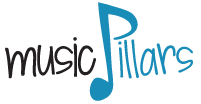So your family is in town, you have a piano, and it's Christmas Time. Someone says, "Let's sing some Christmas carols!" and you shrink in horror because your annoying Aunt heard that you have been taking piano lessons for a year, and so therefore, you must be able to play like Lang-Lang. She pulls out the Reader's Digest Christmas Carol book and plunks it down on the piano, and away the family goes whilst you sweat bullets trying to sight-read the music that you have heard, but have not seen before.
Has this ever happened to you? (or maybe you're the annoying Aunt!) The above scenario is an example of why it can be tremendously rewarding to be able to sight-read well. And like all of the other Pillars, sight-reading requires deliberate practice and consistent effort. Sight-reading also requires something very important that no other Pillar simulates quite as well...the ability to keep going on (and maintaining the rhythm) after despite playing wrong notes. We have all participated in sing-alongs, or church activities, or some song where the poor pianist (or organist) struggles mightily to play the right notes. But on top of playing the wrong notes, the pianist also doesn't keep the tempo, and pretty soon everyone is singing acapella whilst the pianist is panicked on the bench trying to figure out where they (or you) are. Consistent sight-reading practice helps you to place in order of priority the things that you need to do when playing something (live) for the first time:
- Tempo
- Correct Key (play the wrong notes fine, but keep track of what key you are in at least)
- Chords – don’t focus so much on every individual note – see the chordal pattern in the piece, and follow that.
- Melody Line - if you cannot keep up, but can do the first two - then play the melody line
- Above all - keep your cool, and keep going
SCOTT'S PERSONAL THRUST ONTO THE PROFESSIONAL STAGE
At a very young age, musically speaking, (I had been playing for just 3.5 years by the time I was 15) I was given an opportunity that forever changed my life. I know, it sounds dramatic, but it really did have a wonderful impact on me. I auditioned as a pianist for a little musical steak house restaurant called Black Bart’s Steakhouse in Flagstaff, AZ.
When I auditioned, I had memorized a couple fancy classical pieces of music on the piano – like most students do who take traditional lessons. I knew basically nothing about Theory, I couldn't play much of anything by ear, and had very minimal sight-reading ability.
I was excited when I got the job, but then terrified after 30 minutes live on the stage the first night as singer after singer would grab a different binder of music, plunk it down on my stand, sing 1-2 bars of the song to me, and then go grab the mic and we were LIVE!
I honestly thought after two hours that the General Manager would fire me, but for some reason, he saw something in me, and I was allowed to stay. My lessons in Sight-Reading, and using applies Theory had begun, but it truly was like trying to swallow a cup of water as it came out of a fire hydrant!"
But because of that experience for hundreds and hundreds of hours – my ability to sight-read became quite good.











